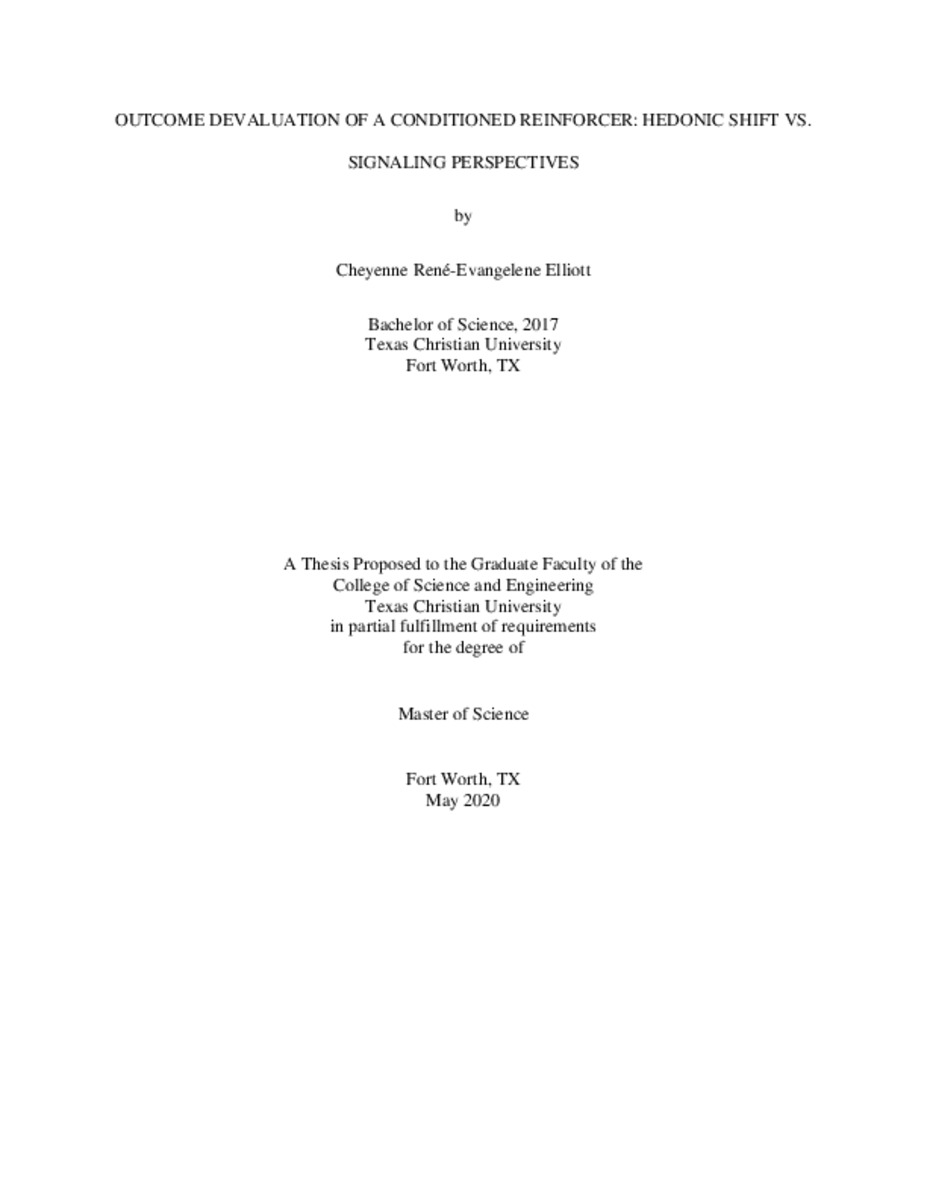Outcome Devaluation Of A Conditioned Reinforcer: Hedonic Shift Vs. Signaling PerspectivesShow full item record
| Title | Outcome Devaluation Of A Conditioned Reinforcer: Hedonic Shift Vs. Signaling Perspectives |
|---|---|
| Author | Elliott, Cheyenne Rene-Evangelene |
| Date | 2020 |
| Genre | Thesis |
| Degree | Master of Science |
| Abstract | Outcome devaluation occurs when an appetitive stimulus (e.g., food) is paired with a painful stimulus (e.g., shock), and results in a suppression of responses elicited by the appetitive stimulus (Adams & Dickinson, 1981). Hedonic shift theory states that response suppression occurs from a change in the affective value of the outcome from appetitive to aversive. Subsequent response suppression is not observed until the outcome is contacted again. Contrarily, signaling theory states that the affective value of the outcome does not change, but instead the outcome acts as a predictor for illness, and reexposure is not needed for the suppression of the response (Balleine & Dickinson, 1991). The current study investigated whether a conditioned reinforcer, initially paired with food and subsequently paired with a painful shock, would exhibit the same devaluation and reexposure effects. Rats reexposed to the conditioned reinforcer subsequently pressed the lever less than rats that were not reexposed. These results reveal that a conditioned reinforcer can be devalued, and that hedonic shift occurs beyond conditioned taste aversion procedures. |
| Link | https://repository.tcu.edu/handle/116099117/39840 |
| Department | Psychology |
| Advisor | Leising, Kenneth J. |
Files in this item
This item appears in the following Collection(s)
- Masters Theses [4145]
© TCU Library 2015 | Contact Special Collections |
HTML Sitemap



